DACF Home → Bureaus & Programs → Municipal Planning Assistance Program → Technical Assistance → Planning Webinars
Natural Hazards and Land Use Planning for Maine Communities
Natural Hazards and Land Use Planning 101 Webinar Series
The Maine Coastal Program, Maine Geological Survey, and the Department of Agriculture, Conservation, and Forestry’s Bureau of Resource Information and Land Use Planning invite you to participate in a series of webinars and in-person workshops on minimizing the impacts of natural hazards and enhancing community resilience. Topics include comprehensive planning, vulnerability assessments, infrastructure upgrades, and model zoning and ordinances. This educational series, running from August 2024 to early 2025, is designed for municipal staff, committees, and people from related fields interested in learning about mitigating impacts from natural hazards (such as wildfires, erosion, storm surge, and flooding). No prior experience necessary, all are welcome. Sessions require advance registration.
This series would not be possible without the following partners:


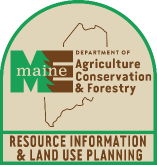
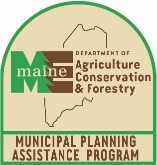
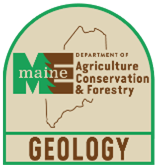

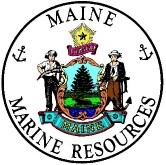
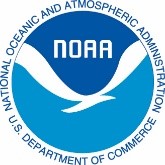
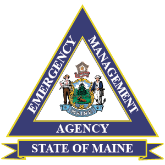
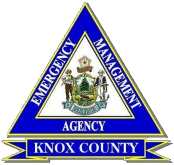
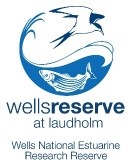
Webinar Archive
Bonus Session: Demystifying Nature-Based Strategies, 2/25/2025
In the final webinar of this series, we provided an introductory primer on the basics of nature-based strategies, shared examples of these activities occurring in Maine, and highlighted ways communities and practitioners can bring nature-based strategies into their work. We will shared strategies that fall across the restore, adapt, protect, and retreat spectrum. Hazards covered in this session included flooding and erosion. Presentation available as a PDF.
Featured speakers include Helena Tatgenhorst, The Nature Conservancy Coastal Program Manager, Nathan Robbins, Maine Department of Environmental Protection Climate Change Specialist, Pete Slovinsky, Maine Geological Survey Coastal Geologist, Robert "Bobby" van Riper, Maine Coastal Program Marine Resource Management Coordinator, and Dr. Jessica Brunacini, Wells National Estuarine Research Reserve Coastal Training Program Director.
5th Session: Funding and Financing Hazard Resilience, 1/13/2025
In the 5th session in our Introduction to Natural Hazards and Land Use Planning Series we talked about ways to fund and finance many of the resilience activities we introduced in previous sessions. We explored the concepts of capital stacking and capital improvement plans. A group of expert speakers introduced funding, financing, and cost-reduction programs that communities can take advantage of. These included programs and grants from local, state, federal, and nongovernmental sources. Concepts covered included tax increment financing, municipal banking options, natural land acquisition, flood insurance discounts, and grants for urban forestry and wildfire resilience. The session wrapped up with a guest speaker from Monhegan Island to discuss how their community is using capital stacking and establishing a reserve account to fund their resilience project. There are many funding and financing opportunities for natural hazard resilience that were not discussed in this session. Our goal with this session was to introduce concepts, funding sources, and programs that communities may be less familiar with but could still benefit greatly from. Presentation available as a PDF.
Featured speakers include Max Johnstone and Dan Debord, Midcoast Council of Governments, Patti Gwara & Nicci Kimball & Monique McRae, First National Bank, Laura Graham, Land for Maine's Future Director, Sue Baker, Floodplain Management Program State NFIP Coordinator, David Ludwig, Maine Bureau of Resource Information and Land Use Planning Senior Climate Planner, and Thomas McClellan, Monhegan Island - Island Institute Fellow.
4th Session: Perspectives on Land Use Planning for Risk Reduction, 12/18/2024
In the 4th session in our Hazards Series, we highlighted examples of zoning, ordinances, and other strategies used by communities to increase their resilience to natural hazards such as flooding, sea level rise, erosion, and extreme heat. This session included learning from and a discussion with a panel of planners and code enforcement officers from Maine communities that implemented hazard-related land use strategies. Presentation available as a PDF.
Featured speakers include Jeremy Martin, Camden Planning & Development Director, Michael Martone (AICP), Newcastle and Damariscotta Planner, Laura Graziano and Curtis Brown, Lincoln County Regional Planning Commission, Max Johnstone and Dan Debord, Midcoast Council of Governments, Rachael Hamilton, Maine Coastal Program NOAA Coastal Management Fellow, and David Ludwig, Maine Bureau of Resource Information and Land Use Planning Senior Climate Planner.
3rd Session: Connecting Community Planning to Hazard Mitigation Planning, 10/24/2024
In the third session, we discussed incorporating hazard mitigation plans and community engagement into broader community planning and land use development efforts. Knox County EMA presented on the hazard mitigation planning process, what communities can do to better prepare for reporting after disasters, and how Knox EMA is using geographic information systems (GIS) to map hazards for the updated Knox County hazard mitigation plan. Joan Walton presented on opportunities to incorporate hazard mitigation into community planning, like capital improvement plans and the National Flood Insurance Program. Presentation available as a PDF.
Featured speakers include Rachael Hamilton, Maine Coastal Program NOAA Coastal Zone Management Fellow, Joan A. Walton (AICP), Maine Municipal Planning Assistance Program Program Director, Candice Richards, Knox County Emergency Management Agency Director, and Leticia van Vuuren, Knox County Emergency Management Agency Geospatial Database Manager.
During this session, folks joined breakout groups to start to bridge gaps and make connections between community planning and hazard mitigation. This worksheet contains questions that folks may use to prompt discussion and take action.
2nd Session: Assessing Risk from Natural Hazards, 9/17/2024
In the second session in our Hazard Planning Series, we presented ways to start assessing hazard exposure (such as wildfire, erosion, and flooding) in your community. We discussed how risk levels or adverse effects from hazard exposure change based on several different criteria, including social vulnerability. Attendees left knowing how they could identify, or use a suite of online tools to identify, where there may be greater risk to natural hazards in their community. This session provided a foundation for determining, and justifying (e.g., when applying for a grant), areas that may require more in-depth analysis. Presentation available as a PDF.
As part of this workshop, subject matter experts hosted breakout groups for attendees to practice using tools for assessing risk in several topic areas. Resources used in the breakout groups can be found below, along with presenter contact information.
Social Vulnerability in Natural Hazard Assessments
Dr. Jessica Brunacini, Coastal Training Program Director
Wells National Estuarine Research Reserve
Wildfire Risk, Air Quality, and Tree Equity
David Ludwig, Senior Climate Planner
Maine Bureau of Resource Information and Land Use Planning
Coastal Flood Risk
Dr. Hannah Baranes, Coastal Scientist
Gulf of Maine Research Institute
Erosion, Bluffs, and Shoreline Stabilization
Nick Whiteman, Marine Geologist
Maine Geological Survey
Stream Crossings and Tidal Restrictions
Corinne Michaud-LeBlanc, Beginning with Habitat Program Climate Coordinator
Maine Department of Inland Fisheries & Wildlife
Learn more about Beginning with Habitat here and view some of their data maps here.
1st Session: Introduction to Natural Hazards and Land Use Planning, 8/14/2024
As the first session in our Hazards Series, we started with the basics of natural hazards (wildfire, flooding, erosion) experienced by coastal Maine communities and how they connect to land use planning. Then we discussed potential actions you can take to address hazards proactively. This session did not cover strategies in depth but provided a starting place to make informed decisions in your community. Presentation available as a PDF.
Featured speakers include David Ludwig, Maine Bureau of Resource Information and Land Use Planning Senior Climate Planner, Devin Domeyer, Maine Coastal Program Coastal Resilience Specialist, and Nick Whiteman, Maine Geological Survey Marine Geologist.